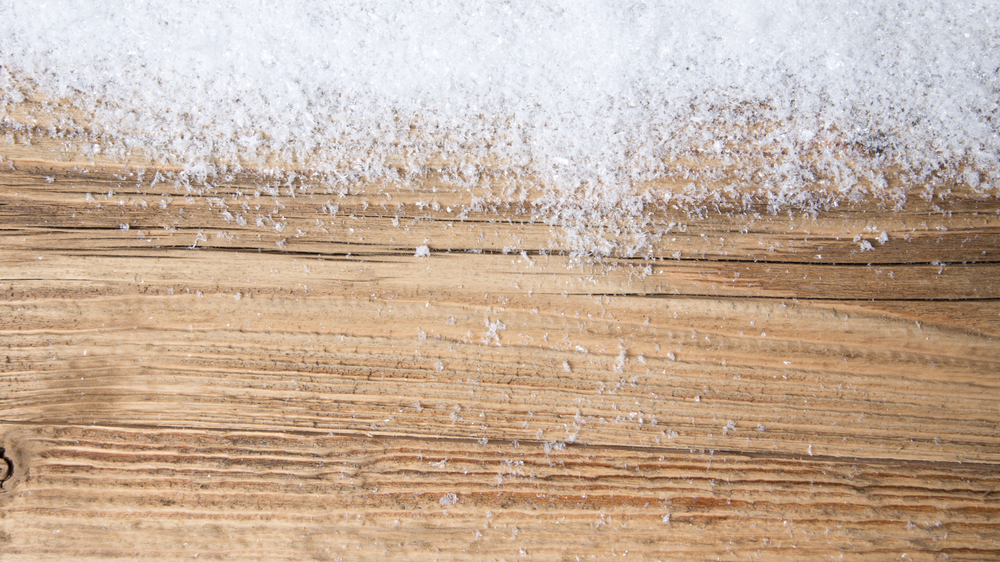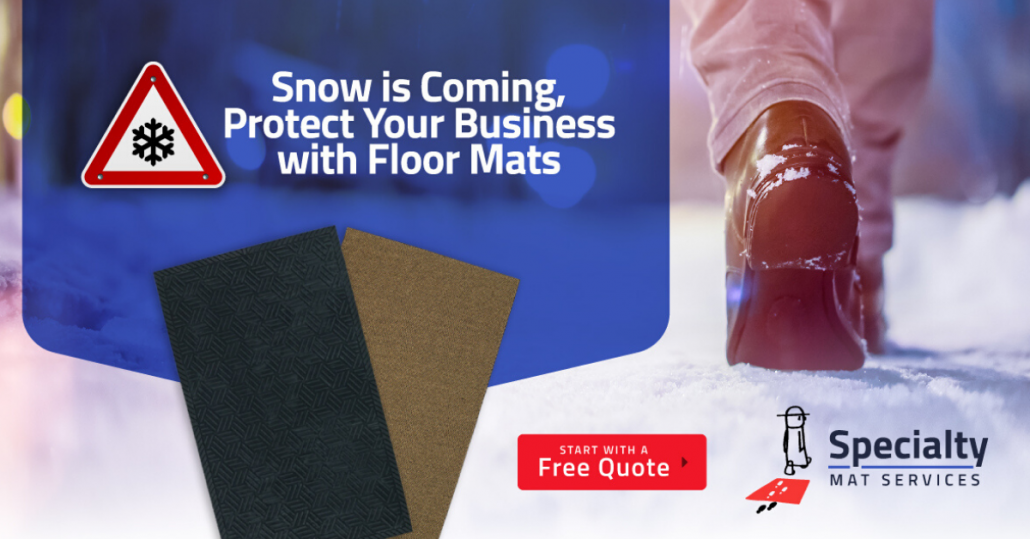How Snow and Cold Weather Damages Floors
- November 01, 2019
- Mats
- specialtymat

Winter is upon us, and your floors are vulnerable to snow and other harsh conditions. Protect your floors this winter with the right mats from the right place.
Cold weather brings many hazards. With snow, ice, deep freezes, and winter storms on your mind, it can be easy to forget about the floor under your feet.
Here are some winter hazards that your floors will face:
Snow
Water from rain is bad, but snow water is even worse. Particles and other materials latch onto the solid surface of snow and get carried into your building. Anything from dirt, vegetation, and sediment not only makes the snow water more hazardous, but also adds abrasive elements to the puddle.
Snow brought to room temperature also encourages floor warping more heavily than just water. If fresh, then ice serves as a harsh abrasive element.
Salt
The salt used to remove ice from roads and sidewalks can be tracked into your business by your employees and clients. As one of the most abrasive compounds, salt is a major enemy to your floor’s health.
Few things are more corrosive to materials than salt water. Even after the water dries, salt will remain. If somebody isn’t vigilantly caring for the floor during operational hours–drying the water, and sweeping the salt up– damage will accumulate quickly.
Water
Regardless of what type of flooring you have, the presence of water will have an adverse effect.
Wood or laminate floors are the most susceptible to water damage. A good treatment can keep them resistant to damage for a while, but every instance of water exposure tests and strips that treatment. With enough testing, the wood will start to interact with the water. Discoloration due to mold presence, mineral interaction, or warping will follow shortly.
Linoleum, while itself resistant to water damage, is not a perfect barrier. When water permeates its edges and divisions, the subflooring absorbs it. As the subflooring becomes more and more degraded, the structural integrity of the floor weakens.
Tile, like linoleum, is resistant to water, but also has the added advantage of allowing water to evaporate if it penetrates the tile’s surface. However, this isn’t a sure thing, and if the presence of water is too continuous, the evaporation won’t happen. Damage to the wood underneath won’t be far behind.
What Can You Do?
Any flooring expert will tell you that prevention is far less expensive and time consuming than repair. The best way to prevent damage to your floors due to snow and other winter conditions, regardless of the type of floors you have, is to use floor mats from a qualified and experienced floor mat professional.
Specialty Mat is Your Winter Mat Solution
Snow doesn’t have to ruin your floors. With a selection of over 200 mats, you can rest assured that Specialty Mat has you covered. We will customize the mats you need to serve and protect your business.
Give us a call at 800-941-MATS. Don’t forget to ask about a free quote!






 Infinite Laundry
Infinite Laundry